
Aisha Barber, MD, MEd
Director of the Pediatric Residency Program at Children’s National Hospital in Washington, D.C.; Attending Physician in the Division of Hospital Medicine and Associate Professor of Pediatrics at Children’s National Hospital and George Washington University School of Medicine and Health Sciences
Dr. Barber has led initiatives in simulation, resident assessment, resident well-being, patient safety, and diversity, equity, and inclusion (DEI). She serves as a member of the board of directors of the Association of Pediatric Program Directors (APPD), completed an ACGME Equity Matters fellowship, and serves as principal investigator for the Rozanski Fund’s Building Equity in Graduate Medical Education (BEING) Initiative at Children’s National.

Shawneequa Callier, JD, MA
Associate Professor in the Department of Clinical Research and Leadership at the George Washington University School of Medicine and Health Sciences (SMHS)
Professor Callier teaches courses in bioethics and serves as a Special Volunteer at the Center for Research on Genomics and Global Health, National Human Genome Research Institute, National Institutes of Health. Professor Callier promotes diversity and inclusion in research through her scholarship on global equity in genomic research and precision medicine. Based on the value of one of her co-authored analyses on global genomics equity, NIH recognized her and her collaborators with a 2017 Genome Recognition of Employee Accomplishments and Talents (GREAT) Award from the National Human Genome Research Institute.
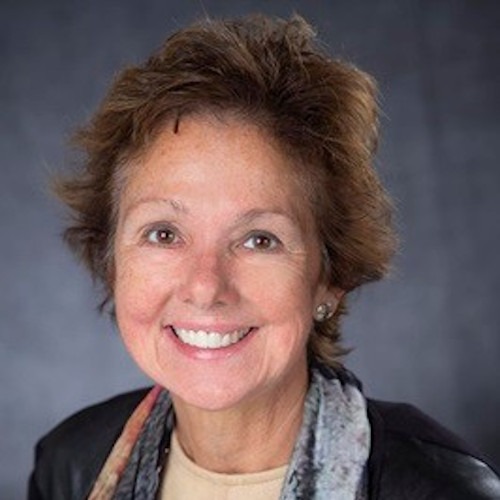
Mary Ottolini, MD, MPH, MEd
George W. Hallett, MD Chair of Pediatrics and Professor of Pediatrics at the Barbara Bush Children’s Hospital at Maine Medical Center in Portland, Maine
Dr. Ottolini is the George W. Hallett MD Chair of Pediatrics at the Barbara Bush Children’s Hospital at Maine Medical Center, a Tufts University Professor of Pediatrics, and the founder and advisor of the Barbara Bush Children’s Hospital Scholarship Academy. Prior to joining Maine Medical Center, Dr. Ottolini was most recently the Vice Chair of Education at Children’s National Hospital where she supervised over 1000 trainees annually in developing expertise in pediatrics across the spectrum of learners from medical students to sub-specialty fellows and faculty. Through her scholarship, Dr. Ottolini is a nationally recognized expert in medical education with particular expertise in eLearning. During her 30 year career as a medical educator she has presented numerous workshops and original research in medical education at national meetings.

Olanrewaju (Lanre) Falusi, MD, MEd
Medical Director of Advocacy Education in the Child Health Advocacy Institute of Children’s National Hospital in Washington, D.C.
Dr. Falusi is an Associate Program Director in the Children’s National Hospital Pediatric Residency Program, directing the Leadership in Advocacy Under-resourced Communities and Health Equity (LAUNCH) Track, which trains pediatric residents to become leaders in policy, advocacy, and community healthcare delivery. Dr. Falusi is a Past President of the Washington, DC Chapter of the American Academy of Pediatrics (DC AAP) and an Executive Committee member of national AAP’s Council on Immigrant Child and Family Health. She has spoken at national conferences on poverty, antiracism, and social determinants of health, and she regularly provides testimony and media advocacy on local and national levels to promote child health and well-being.

Glenn Flores, MD
Professor and Chair of Pediatrics, Senior Associate Dean of Child Health, and the George E. Batchelor Endowed Chair in Child Health at the University of Miami Miller School of Medicine; Physician-in-Chief at Holtz Children’s Hospital
Dr. Flores is the director of the National Institute of Diabetes and Digestive and Kidney Diseases/Academic Pediatric Association Research in Academic Pediatrics Initiative on Diversity (RAPID), whose goal is to provide career development and advancement for diverse junior faculty in general academic pediatrics pursuing careers addressing pediatric obesity, nutrition, and/or sickle cell disease. He drafted 2018 legislation which was signed into law by Congress and the President as part of Children’s Health Insurance Program (CHIP) reauthorization which makes organizations that use parent mentors eligible to receive $120 million in CMS grants for Medicaid and CHIP outreach and enrollment.

Arvin Garg, MD, MPH
Professor of Pediatrics and Vice Chair of Health Equity at University of Massachusetts (UMass) Medical School and UMass Memorial Children’s Medical Center
Dr. Garg is the Associate Chief Quality Officer for Health Equity for the UMass Memorial Health System. Dr. Garg’s research focuses on addressing adverse social determinants of health (SDoH) within the delivery of pediatric care, particularly for low-income families, and has been cited in professional guidelines. Since 2009, Dr. Garg has been continuously funded by the NIH and has received extramural funding from private foundations. He currently holds two R01 awards and has published over 80 publications. Dr. Garg served as the co-chair for the Serving the Underserved Special Interest Group (SIG) for the Academic Pediatric Association (APA) and was a member of the APA Task Force on Childhood Poverty and was recently the Chair of the Health Care Delivery Committee for the APA.
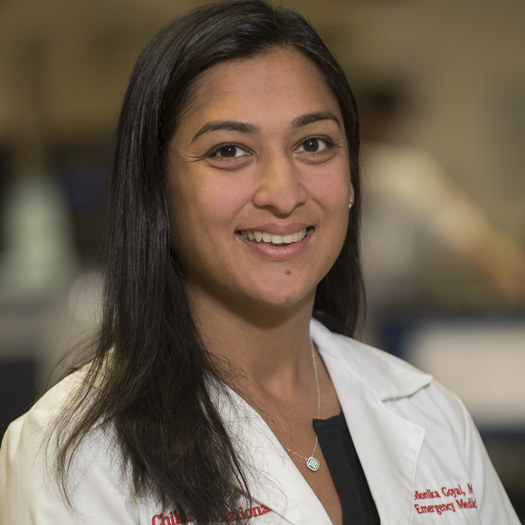
Monika Goyal, MD, MSCE
Associate Professor of Pediatrics and Emergency Medicine at George Washington University; Associate Chief, Director of Academic Affairs and Research, at Children’s National Hospital
In 2022, Dr. Goyal was named the first endowed chair of Women in Science and Health (WISH) at Children’s National Hospital for her contributions in research and mentorship. Dr. Goyal is an epidemiologist and patient-oriented researcher, with expertise in both large database research and clinical trial design and has secured more than $10M in grant funding. Her NIH-funded research program, titled ADAPT (Addressing Disparities through Advocacy, Prevention, and Technology) seeks to identify and address disparities in both health care provision and health outcomes for youth.

Nia Heard-Garris, MD, MSc
Pediatrician and a physician-investigator at the Ann & Robert H. Lurie Children’s Hospital of Chicago and in the Department of Pediatrics at Northwestern University Feinberg School of Medicine
Dr. Heard-Garris examines the influence of social adversities experienced in childhood and subsequent child and adolescent health and is interested in the factors that contribute to a child’s ability to thrive despite these experiences. Her work is federally funded by the National Heart Lung and Blood Institute and investigates adolescent cardiometabolic health as well as approaches to empowerment and resilience. Dr. Heard-Garris proudly serves as the inaugural Associate Editor for Health Equity Research for the Journal of Developmental & Behavioral Pediatrics. Dr. Heard-Garris is also an active member in the American Academy of Pediatrics (AAP) and serves as the Chair and founding member of the Section of Minority Health, Equity, and Inclusion.

Darcel Jackson, CPXP
Certified Patient Experience Professional
Ms. Jackson is the mother of a wonderfully made 17-year-old daughter, Anniyah, who has complex health needs. This changed the course of her life and created a passion to facilitate improvement with various aspects of special needs caregiving. She currently serves as Patient and Family Coordinator at Children’s National Hospital where she works to advance Patient/Family Centered Care and coordinates ways in which patients and family members can contribute to the mission and values of the organization. Ms. Jackson is also parent advisor on Children’s National Patient and Family Advisory Council and through her participation sits on various hospital committees, including Patient Experience Committee and Diversity and Inclusion Sub-Committee.

Suni Kaiser, MD, MSc
Professor of Pediatrics, Epidemiology & Biostatistics; Benioff UCSF Professor of Children’s Health; Chief, UCSF Division of Pediatric Hospital Medicine; Affiliate Faculty, Philip R. Lee Institute for Health Policy Studies University of California, San Francisco
Dr. Kaiser’s research program focuses on improving care quality and health outcomes for hospitalized children. Specific areas of focus include: 1) using implementation science to accelerate the pace at which evidence is broadly implemented into care, 2) leveraging quality and safety infrastructure and resources to advance health equity, and 3) growing and synthesizing the evidence base around care of common diagnoses among hospitalized children. Dr. Kaiser is currently supported by grants from the National Institutes of Health, the Agency for Healthcare Research and Quality, and private foundations. She serves as Chair of the Pediatric Research in Inpatient Settings (PRIS) Network and helps steer the AAP’s Pediatric Acute and Critical Care (PACC) Quality Network.
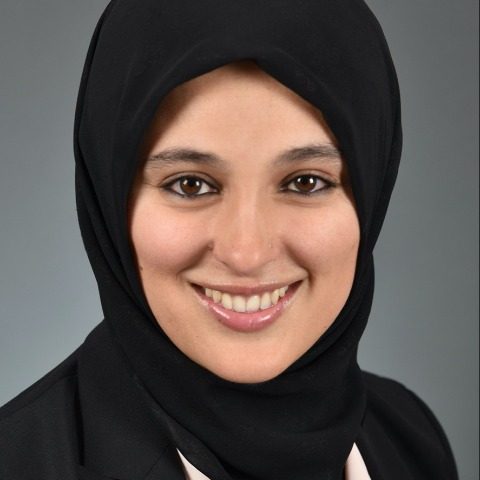
Alisa Khan, MD, MPH
Pediatric hospitalist and health services researcher at Boston Children’s Hospital; Assistant Professor of Pediatrics at Harvard Medical School
Dr. Khan is a pediatric hospitalist and health services researcher at Boston Children’s and an Assistant Professor of Pediatrics at Harvard Medical School. She is also the Director of the Program for Language Equity in the Division of General Pediatrics at Boston Children’s Hospital. She studies family engagement, family communication, patient safety, and language equity. She is the PI of two ongoing multicenter RCTs, an AHRQ-funded R01 of a multilingual family safety reporting tool (I-SHARE) and a PCORI-funded study of an intervention to improve communication and safety for hospitalized children who speak languages other than English (I-PASS LISTEN).

Lynn Kysh, MLIS
Clinical & Research Librarian at Children’s Hospital Los Angeles (CHLA)
Ms. Kysh is a health sciences librarian with nearly a decade of experience. She is currently the solo librarian at Children’s Hospital Los Angeles (CHLA) and is a member of CHLA’s Institute for Nursing and Interprofessional Research. Her responsibilities include investigating the value of health humanities, conducting systematic and scoping reviews, and teaching evidence-based practice.

Casey Lion, MD, MPH
Associate Professor at the University of Washington School of Medicine and Research Director at Seattle Children’s Center for Diversity and Health Equity
Dr. Lion’s NIH-funded research program focuses on the interactions between patient-provider communication, health system navigation, and healthcare equity, with a particular focus on improving care for families that use a language other than English for medical care. She has additional methodologic expertise related to QI research methods and the effect of QI on health equity; community-engaged intervention development; and strategies to promote research inclusion among individuals from historically marginalized backgrounds and those who use a language other than English for care. She is currently PI on two R01s funded by the National Institute on Minority Health and Health Disparities (NIMHD).

Chaya Merrill, DrPH
Director of the Child Health Data Lab within the Child Health Advocacy Institute at Children’s National Hospital in Washington, DC.
Dr. Merrill leads an effort to establish the data infrastructure needed to monitor, analyze, and report on population health and health equity. She has significant experience working collaboratively with community-based organizations to facilitate social and health change. She holds a doctorate in Public Health and is an Assistant Professor of Pediatrics at The George Washington University School of Medicine and Health Sciences.

Patricia Poitevien MD, MSc
Senior Associate Dean for Diversity, Equity and Inclusion at the Warren Alpert Medical School of Brown University; Associate Professor in the Division of Pediatric Hospitalist Medicine at Hasbro Children’s Hospital; President for the Association of Pediatric Program Directors
Dr. Poitevien became the Residency Program Director at NYU/Bellevue in 2013, and shortly thereafter was a founding member of the Association of Pediatric Program Directors (APPD) Learning Community on Underrepresented Minorities in Medicine (UIM). As Senior Associate Dean, she serves as a liaison between the Brown Medical School, the undergraduate campus and affiliated clinical partners to ensure that diversity and equity are high level priorities and collaboratively works across organizational systems to implement effective policies and initiatives.

Jean L. Raphael, MD, MPH
President of the Academic Pediatric Association; Division Chief for Academic General Pediatrics, Professor of Pediatrics, and Vice Chair for Clinical Affairs in the Department of Pediatrics at Baylor College of Medicine and Texas Children’s Hospital
Dr. Raphael is a nationally recognized health services researcher with a focus on health equity and improving systems of care for underserved children. He has been funded by NIH, PCORI, and Health Resources and Services Administration. Dr. Raphael’s research is complemented by policy efforts toward improving the care of vulnerable populations. He is the President for the Academic Pediatric Association, a past appointee of the Lieutenant Governor to the Texas Health Disparities Task Force, and the founding Director of the Center for Child Health Policy and Advocacy at Texas Children’s Hospital.

Christopher J. Russell, MD, MS
Academic pediatric hospitalist and Associate Professor of Pediatrics at Stanford University
Dr. Russell’s research focuses on developing evidence-based care for hospitalized children with medical complexity, including acute respiratory infections such as pneumonia and bacterial tracheitis. His research efforts have been recognized through receipt of the USC Clinical and Translational Science Institute’s KL2 Mentored Research Career Development Award, the Academic Pediatric Association’s Young Investigator Award, the NIH/NHLBI Loan Repayment Program, and a grant from the Gerber Foundation. In August 2021, he received a five-year R01 award from the Agency for Healthcare Research and Quality to study bacterial respiratory infections in child with tracheostomy. Dr. Russell is the former director of the Academic Pediatric Association’s New Century Scholars Resident Mentoring Program for pediatric residents underrepresented in academic medicine and the chair of the Academic Pediatric Association’s Membership, Diversity and Inclusion Committee.

Maranda Ward, EdD, MPH
Assistant Professor in the Department of Clinical Research and Leadership and Emerging Scholars Fellow in Antiracism and Health Equity in the George Washington University School of Medicine and Health Sciences
Dr. Ward’s research focuses on diversity, equity, inclusion, justice and antiracism educational interventions as well as stakeholder-engaged community-focused studies on HIV, Black women’s health, and youth identity. She also serves as the Ambassador Program Lead for the George Washington University Health Careers Opportunity Program. With this pipeline program, she ensures that students from underrepresented backgrounds are fully supported as they are introduced to the range of health professions and the social, technical, and professional skills necessary to be successful. Her teaching excellence was recognized with the highest teaching honor at GW- the 2021 Morton A. Bender Teaching award.
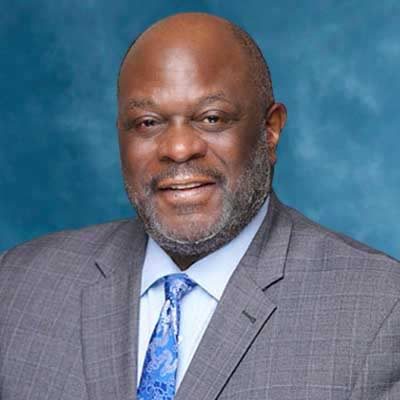
Joseph Wright, MD, MPH
Inaugural Chief Health Equity Officer of the American Academy of Pediatrics (AAP)
Dr. Wright previously served as tenured Professor and Chair of Pediatrics at the Howard University College of Medicine, and as Senior Vice President within the Children’s National Hospital, where he provided strategic leadership for the organization’s advocacy mission, public policy positions and community partnership initiatives. He maintains appointments as adjunct Professor of Emergency Medicine and Health Policy at the George Washington University and teaches as Professor of Health Policy and Management at the University of Maryland School of Public Health. He has contributed over 120 publications to the scientific literature, served more than 30 visiting professorships, and was principal investigator of the NIH-funded DC-Baltimore Research Center on Child Health Disparities.

Samir S. Shah, MD, MSCE, MHM
Vice Chair for Clinical Affairs and Education, Cincinnati Children’s Hospital; Professor of Pediatrics, University of Cincinnati College of Medicine; Editor-in-Chief, Journal of Hospital Medicine
Dr. Shah’s research has focused on improving the effectiveness of hospital-based care for children. Through several national leadership roles, he helped establish and leverage data infrastructure for comparative effectiveness research and bring over 800 investigators from >50 hospitals into the research community through participation in multicenter studies. He co-authored the National Academies of Sciences, Engineering, and Medicine report on the pediatric subspecialty workforce and its impact on child health and well-being. Dr. Shah’s national recognition as a researcher, mentor, and leader in the academic development of the field of hospital medicine includes a lifetime achievement award from the Society of Hospital Medicine. He writes about leadership and mentorship and serves as a healthcare leadership coach. Dr. Shah practices both pediatric hospital medicine and pediatric infectious diseases.

Tumaini Rucker Coker, MD, MBA
Division Head for General Pediatrics and Professor of Pediatrics at the University of Washington School of Medicine and Seattle Children’s
Dr. Coker is a general pediatrician and community-engaged health services researcher. Her research focuses on community-partnered pediatric primary care delivery design to promote health equity and eliminate health and healthcare disparities for children and families in low-income communities. She is the former and founding Research Director of the Health Equity Research Program at Seattle Children’s Center for Diversity and Health Equity, and serves as the Co-Director of the University of Washington’s NIH-funded Child Health Equity Research Fellowship. Dr. Coker is a member of the United States Preventive Services Task Force (USPSTF), and an elected member of the National Academy of Medicine (NAM).
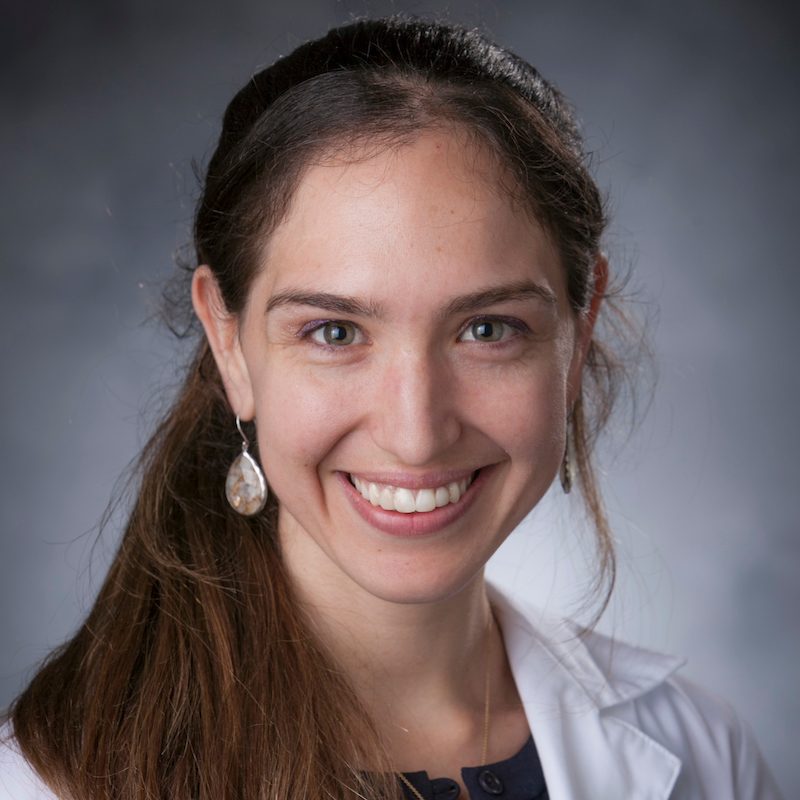
Victoria Parente, MD, MPH Assistant Professor of Pediatrics at Duke University School of Medicine
Dr. Parente is a pediatric hospitalist and health equity researcher at Duke Children’s Hospital. Her research aims to develop evidence-based interventions to reduce health inequities in the inpatient pediatric setting, with a focus on language justice and patient-provider communication. She is supported by the National Institute of Health. Currently, she is testing an equity focused and trauma informed communication intervention to teach clinicians skills to enhance equity and inclusion on family centered rounds. Additionally, she is studying the impact of stigmatizing language in resident handoffs on patient care and developing an intervention to reduce stigmatizing language.

Patrick Brady, MD, MSc Professor of Pediatrics at University of Cincinnati College of Medicine; Interim Co-Director and Research Director, Division of Hospital Medicine; Attending Physician at Cincinnati Children’s Hospital
Dr. Brady is a hospital-based pediatrician, improvement scientist, and health services researcher with a focus on improving the safety and value of hospital care. His research seeks to co-produce with patients and families complex interventions and then compare their effectiveness on difficult and high stakes health systems problems. In his largest portfolio of work, he and his team have developed and implemented interventions to heighten situation awareness, a high reliability strategy, to improve the prediction, recognition, and treatment of deteriorating hospitalized patients. His current research is funded by AHRQ, NIH, and PCORI. He also is Editor-in-Chief of Hospital Pediatrics as well as the Science Officer for the Pediatric Research in Inpatient Settings (PRIS) Network of >100 children’s hospitals.
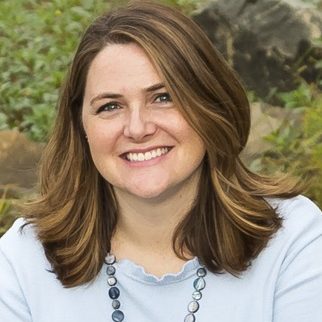
Diane Putnick, PhD Statistician with the Epidemiology Branch, Division of Population Health Research, Intramural Program, Eunice Kennedy Shriver National Institute of Child Health and Human Development
Dr. Putnick is a researcher focused on child development, mental health, and family functioning across contexts. Her recent work has focused on risk factors and warning signs for developmental delays including place-based factors, feeding problems, screen time, and peer play. A second interest is on the origins, course, and trajectories of perinatal depression. Throughout her work, Dr. Putnick maintains an eye toward research methodology. She has published papers about the implications of sampling choices for generalizability and effect estimation, and measurement invariance conventions and reporting.

Michelle White, MD, MPH Associate Professor of Pediatrics and Population Health Sciences, Division of Hospital Medicine, Duke University Medical Center
Dr. White is a board-certified pediatric hospitalist and clinician scientist. She strives to reveal and eliminate the structures and processes that lead to disparities in child health outcomes. Her work engages families, children and communities, centering the voices and expertise of those who have experienced discrimination and marginalization. Dr. White uses a variety of research approaches including geographic, qualitative, and health equity research methods to identify health disparities and develop interventions to mitigate health disparities. As a mentor, she trains a diverse array of students, residents, fellows and faculty in health equity research methods. She also works to cultivate systems which foster the success of trainees and clinician scientists from underrepresented backgrounds. Collectively, Dr. White’s work highlights equity as a critical component of biomedical research.

Jessica Bettenhausen, MD PHM Division Director and Associate Chair of Pediatrics, Children’s Mercy Kansas City; Professor of Pediatrics, University of Missouri – Kansas City
Dr. Bettenhausen serves as the Division Director for Pediatric Hospital Medicine and Associate Chair of Pediatrics and is a practicing pediatric hospitalist and health services researcher at Children’s Mercy Kansas City. Her research aims to reduce health care disparities and to create a measurable improvement in health outcomes for children exposed to adverse social conditions. Dr. Bettenhausen is most interested in the role of partnerships between health care systems and community leaders and the effect of health care policy on improving child health equity. At a national level, she serves within the Executive Committee of the Academic Pediatric Association’s Health Policy Scholars Program.
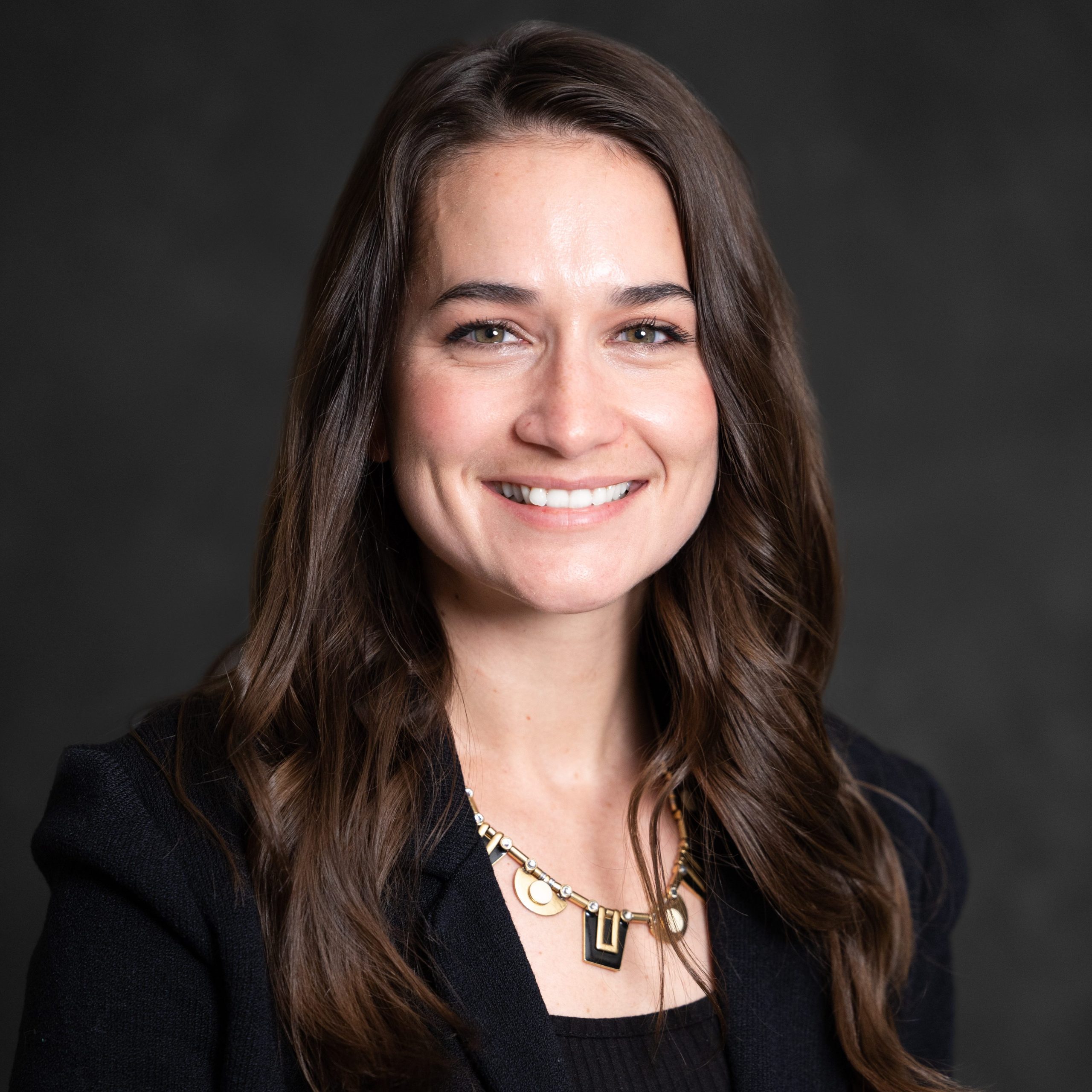
Jordan Tyris, MD
Assistant Professor of Pediatrics, Department of Pediatrics, George Washington University School of Medicine and Health Sciences, Attending Physician, Division of Hospital Medicine, Children’s National Hospital
Dr. Tyris is pediatric hospitalist and researcher at Children’s National Hospital and an Assistant Professor of Pediatrics at the George Washington University School of Medicine and Health Sciences. Her research aims to identify and eliminate disparities in pediatric asthma morbidity by addressing social adversity at both the community and family-level, with a particular focus on early childhood. Her work has been published in leading journals including Pediatrics, JAMA Pediatrics, and the Journal of Allergy and Clinical Immunology. She was a recipient of a Young Investigator Award from the American Pediatric Association in 2022 which supported her work characterizing caregiver perceptions of social determinants of health and pediatric asthma outcomes in early childhood. Currently, Dr. Tyris is a scholar in the Pediatric Scientist Development Program and is supported by the Intramural Research Program of the Eunice Kennedy Shriver National Institute of Child Health and Human Development. Here, she continues to explore associations between place and asthma outcomes across childhood, family-level factors that modify these associations, as well as families’ perceptions of housing risk factors and children’s asthma and their experience with related resources.

Asha Payne, MD
Associate Professor of Pediatrics and Emergency Medicine at Children’s National Hospital; Pediatric Medical Director, Department of Emergency Medicine at Doctor’s Community Hospital
Dr. Payne is an associate professor of Pediatrics and Emergency Medicine at Children’s National. Dr. Payne completed Pediatric residency training at Duke Hospital and fellowship training in Pediatric Emergency Medicine at Children’s National. After serving as the Assistant Medical Director for the Sheik Zayed campus Emergency Department, she is now the Pediatric Medical Director in the Department of Emergency Medicine at Doctor’s Community Hospital. She has been studying, teaching, and leading QI efforts at Children’s National since 2017. More recently, Dr. Payne has focused on using QI to examine and improve health disparities.

Desiree de la Torre, MPH, MBA
Executive Director of Government and Community Affairs, Children’s National Hospital
Ms. de la Torre is dedicated to creating healthy communities with over 15 years of experience in improving access to quality care and addressing social, economic, and environmental conditions affecting health outcomes and costs. As the Executive Director of Government and Community Affairs at Children’s National Hospital in Washington, D.C., she leads initiatives aligning community health improvement and advocacy. Previously, she was the Director of Community Health Improvement for the Johns Hopkins Health System, overseeing a $3.5 million community benefits strategic planning process and managing The Access Partnership program for uninsured and underinsured patients in East Baltimore. Ms. de la Torre is an active member of various councils and associations, including serving as Chair of the Commission on Health for Montgomery County, Maryland. She is a Presidential Leadership Scholar, with a Master’s degree in Public Health from Boston University, an MBA from Johns Hopkins University, and a Bachelor’s degree in Psychobiology from UCLA.

Matt Hall, PhD
Principal Biostatistician and Co-Director, The Health Services Research Academy at Children’s Hospital Association
Dr. Hall is the Principal Biostatistician and Co-Director of the Health Services Research Academy at Children’s Hospital Association. He has performed pediatrics health services and policy research for over 15 years at CHA. He leads CHA’s Statistical Division and oversees 15 physician-led multicenter research groups that use CHA’s data assets for clinical, operational, and financial improvement by hospitals and policy makers. Matt is the Co-Director of CHA’s Health Services Research Academy, an online training program for people who want to learn how to do health services research. He has co-authored over 500 papers and serves as a Statistical Editor at the Journal of Hospital Medicine
